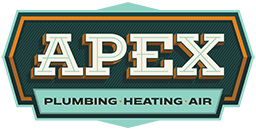
A malfunctioning air conditioner increases cooling expenses and impacts indoor air quality. Common causes of AC repair range from dirty air vents to corroded evaporator coils. Read on to learn the most common causes of AC repair and how to avoid them.
1. Dead Thermostat Batteries
Dead batteries can cause a thermostat to stop working correctly. As the batteries weaken, it causes the thermostat to glitch, which directly impacts how often the AC turns itself on and off. Replacing the batteries in a thermostat every cooling season is an effective way to avoid this problem.
2. Thermostat Turned Off
The thermostat on an AC unit works like a brain as long as it's turned on. It tells the air conditioner to run until the air reaches a certain temperature and then turn off. If the thermostat has new batteries but still won't work, check to ensure it's set to the On or Auto setting and not the Off position. For some thermostats, you must manually switch between heating and cooling modes.
3. Tripped Circuit Breaker
If the thermostat is switched to the On position and has new batteries but still won't work, you can check the circuit breaker. Sometimes, the solution to the problem is as simple as flipping the circuit breaker off and back on. However, the circuit breaker should be tripping. If this happens often, call a technician to investigate the cause.
4. Dirty Air Filter
Dirty air filters impact the AC system in numerous ways. For starters, the purpose of an AC filter is to capture harmful airborne particles. In doing this, the AC improves indoor air quality by ensuring the particles aren't recirculated back into the home.
When the filter is dirty, it reduces its ability to capture airborne pollen, dust, and dirt. This lowers the quality of the air inside and makes the air conditioner less energy efficient. Changing the filter regularly can eliminate this problem.
A dirty filter also allows particles into the inner workings of the system. This can increase wear and tear on the unit and possibly shorten its lifespan. It also restricts airflow, which makes it harder for the AC to maintain the temperature you want. This translates into reduced indoor comfort and higher cooling costs. Over time, if the filter gets dirty enough, it will cause the AC to stop functioning.
5. Blocked Air Registers
Does the AC seem to cool some areas of the home better than others? Blocked or dirty air registers can cause this problem. Make sure that the area around the air ducts is clear. If the ducts are clear but air is still not coming through them, a qualified AC technician can diagnose the underlying problem.
6. Dirty Ductwork
A professional cleaning of your air ducts can reduce the amount of dust that spreads throughout your home. This means you can spend less time dusting and cleaning the rest of your house.
Dirty ductwork is particularly of concern to those with respiratory conditions like asthma or allergies. Clean air ducts help keep your home healthy by keeping stale, dirty air from coming back into your home.
Regular duct cleaning can also lessen the spread of odors in the home, particularly those that mold, pets, cleaning supplies, and tobacco smoke leave behind. If dust and dirt build up in the ducts over time, they will smell musty. This makes cleaning the ducts regularly to keep your home comfortable even more important.
7. Refrigerant Leak
Temperature control will be inconsistent in an air conditioner that is malfunctioning due to coolant leakage. Some indications the refrigerant leaks are the cause include:
- Poor performance
- Excessive energy consumption
- Frozen coils
- Faulty compressor
- Disparate chilling
Since the cost to fix the leak depends on where it is, it is best to have a professional AC technician check out the problem. This way, in addition to recharging the coolant, the underlying problem can be fixed.
8. Clogged Drain Line
Dirt, mildew, and debris can accumulate in the drain pipe until it's clogged. This can make the AC inoperable. Plus, the harmful elements will grow and spread if water cannot channel through to the drain pan.
You can avoid this by having the drain line inspected and cleaned on a regular basis. During the cleaning process, a technician can also make sure that the AC is mounted correctly so that it will drain properly.
9. Burnt Capacitor
The compressor and fan motors can't run without capacitors. Both the start capacitor and the run capacitor are responsible for providing the first shock that starts the motor and the subsequent jolts that keep it running. The air conditioner won't function properly if any of them burn out.
10. Compressor Issues
The compressor in your air conditioner uses mechanical energy to move the refrigerant through the coils, which cools the air. The air conditioner can't maintain a comfortable indoor temperature without a properly functioning compressor. A failing compressor also causes immense wear and tear on the system in a short time as the AC struggles to operate.
Most refrigerant issues stem from there being too much or too little. Insufficient refrigerant causes the compressor to overheat, which can cause the whole unit to seize. Too much refrigerant can clog the compressor, causing it to malfunction. This is why technicians usually double-check refrigerant levels.
11. Corroded Evaporator Coils
After taking the heat out of the air around them, evaporator coils send the cooled air back into the house through a system of ducts. Coils are susceptible to corrosion. Indoor coils usually only need to be checked once every three years, but outdoor coils should be checked more often.
Corrosion of the evaporator coil can be caused by clogged vents and ducts, old filters, or a broken fan. Having all of these elements inspected once a year can minimize evaporator coil issues.
12. Dirty Condenser Coils
Since both the condenser coils and the compressor are outside, they can get dirty from the environment around them. If they get too dirty, an HVAC professional will use a chemical solvent to clean them. Changing the air filter often can also reduce dirty condenser coil problems.
13. Flawed Sensors
Inside the air conditioner, there is a thermostat sensor close to the coil that gets rid of heat. This thermostat checks the temperature of the air coming from the evaporating coil and adjusts the cooling system accordingly.
A sensor that is out of place or failing can cause the AC to cycle on and off at random intervals. The evaporator coil and sensor should be placed in close proximity to one another but not in direct contact. The sensor's placement can be fine-tuned by a professional by manipulating the cable that holds it.
Contact APEX Plumbing Heating Air to Fix AC Issues!
APEX Plumbing Heating Air specializes in various HVAC and plumbing services in the Columbus, OH area. Every step we take aims to improve the overall comfort of your home, both on the interior and exterior. Contact us today if you're experiencing an issue with your home's AC system.





